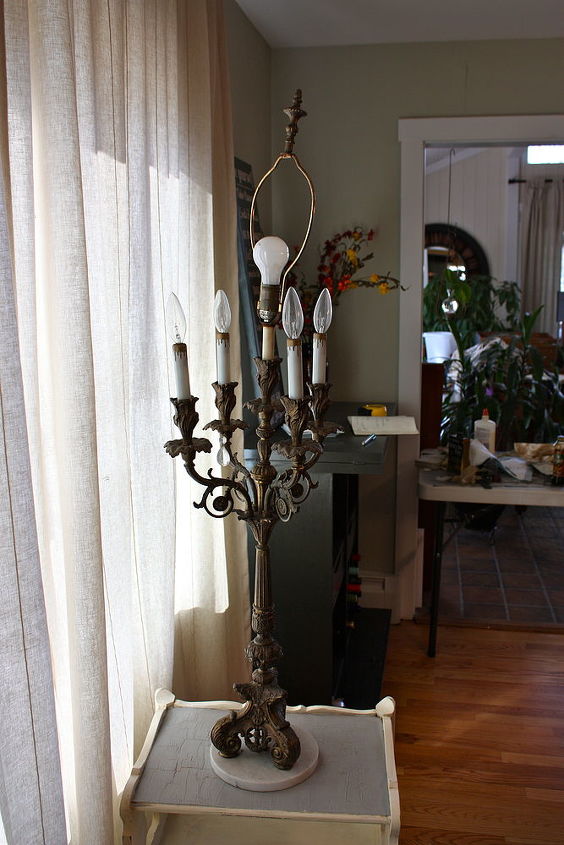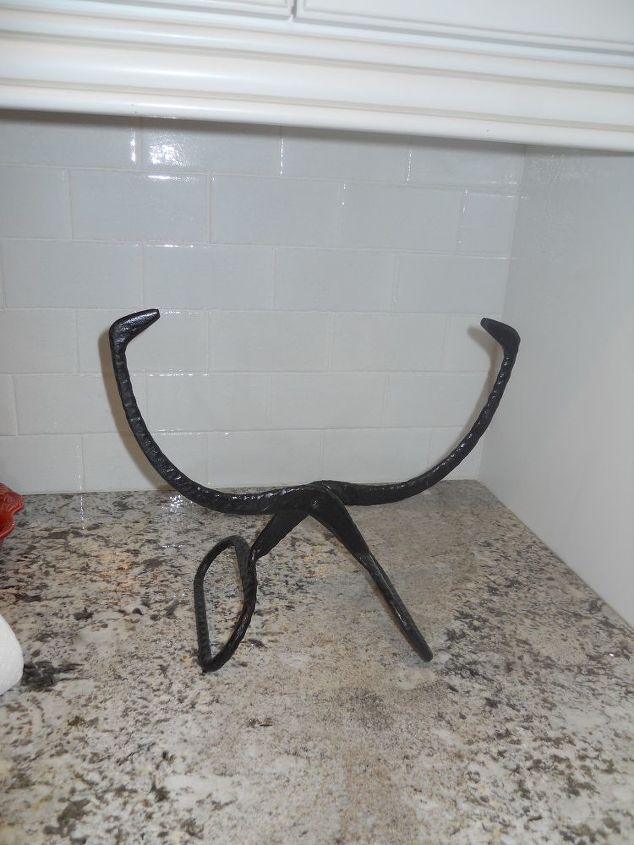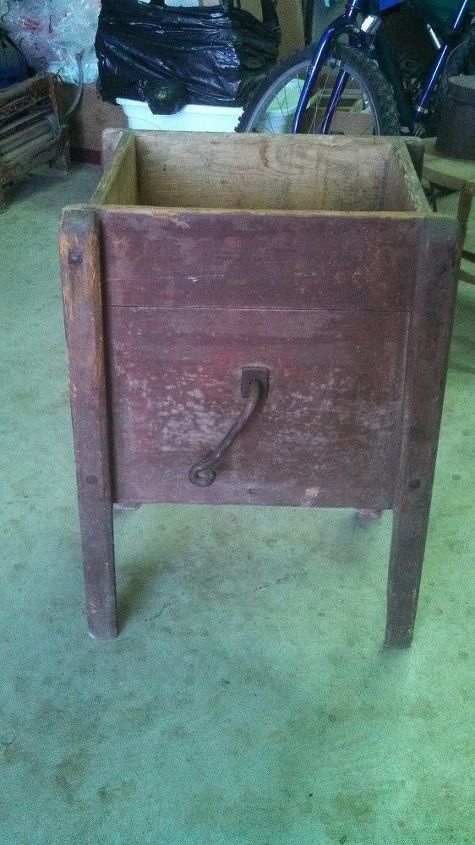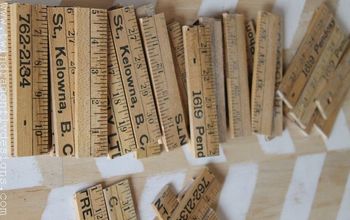How do I clean brushes?

-
The big question is why did you want to use oil in the first place?....when done properly a good latex enamel will work wonders. Cleaning oil will require a few steps. I like to use three containers and work my way through. the first step removes most, with the final third step coming out mostly "clear" . A small brass wire brush will clean the nooks and crannies up near the ferrule. After all of the paint is removed via the thinner the next step is to clean the thinner with soap and water. I know of many painters who will simply wrap their brushes in foil, and do one clean up after the second coat has been applied. Other will use small disposable rollers.
 KMS Woodworks
on Oct 28, 2013
Helpful Reply
KMS Woodworks
on Oct 28, 2013
Helpful Reply -
-
After the mineral spirits, squeeze most of the liquid out, then squirt lots of dishwashing liquid soap on the brush & scrub & rub with your hands to work it through the bristles. Then rinse with warm water. You may need to repeat. I do lots of landscape painting using oils & this method works well. I just read that Murphys Oil Soap works very well on even brushes that are hard. Soak overnight in Murphys/water. It would cut the oil well.
 Margery Hibbard
on Oct 28, 2013
Helpful Reply
Margery Hibbard
on Oct 28, 2013
Helpful Reply -
-
Thank you so much Margery and KMS. It did not make sense to wash oil with water so I held off. To answer your question of why I am using oil...I got the idea from a pin on Pinterest. I contacted the gal to clarify details and she convinced me the durability is well worth the trouble. I talked to the guys at my local Sherman Williams and they seconded my thoughts. I guess just a personal choice. Thanks again.
 Becky
on Oct 28, 2013
Helpful Reply
Becky
on Oct 28, 2013
Helpful Reply -
-
I have to say, when done properly, very thin coats and lightly sanded in between each, an oil paint finish does, in my opinion, look much nicer than water clean up paints. Some how has more depth and richness. I no longer have the patience! Clean up? I do (did) much the same as Margery, but with the help of a pan scrubber to remove any residual bits of paint. Good on you for undertaking such a big job
 Waysouth
on Oct 28, 2013
Helpful Reply
Waysouth
on Oct 28, 2013
Helpful Reply -
-
Way south, thank you. I think my enthusiasm overrode my common sense! It is a huge job as I have 9 drawers and 28 cabinet doors! I am leaving some off so that helps. Thanks again!
 Becky
on Oct 28, 2013
Helpful Reply
Becky
on Oct 28, 2013
Helpful Reply -
-
I have also found that if I tightly wrap my brushes with plastic wrap between coats, they will stay soft and pliable. But that is with latex. Not sure I've used an oil base for years and years, although I would agree that I like the luster of an oil base (and durability) much better. If I knew how to cover the already done latex on my trimming in the house well and durably I'd consider redoing it in oil base! Sounds like KMS knows how!
 Lynn
on Oct 29, 2013
Helpful Reply
Lynn
on Oct 29, 2013
Helpful Reply -
-
oil bascantheed paint -rinse twice with mineral turpentine & leave wrapped in an old t-shirt. You can then wrap & seal in a plastic non- porous bag.
 Louis Lieberman
on Oct 29, 2013
Helpful Reply
Louis Lieberman
on Oct 29, 2013
Helpful Reply -
-
Louis, then can I just start painting the next day or do I have to do something else?
 Becky
on Oct 29, 2013
Helpful Reply
Becky
on Oct 29, 2013
Helpful Reply -
-
Thank you Lynn!
 Becky
on Oct 29, 2013
Helpful Reply
Becky
on Oct 29, 2013
Helpful Reply -
-
I used to own and operate an art and framing studio, so I've worked with a lot of paints, including oils, latex and acrylics. I agree with Lynn - if you will be working again the following day, or even in a few days, wrap the brushes tightly in plastic wrap, then place them in a Ziploc bag in the fridge or freezer until you are ready to use them again. The paint will remain workable and you won't be wasting time and materials removing paint that you will simply have to replace the following day. Once you are finished, the single best thing I have EVER found to clean brushes, which also works on DRIED paint, is orange hand cleaner. I prefer working with the kind without pumice, but either will work, and they are typically widely available and inexpensive. Slather on a good amount of the hand cleaner, work it well through the bristles, then let it sit for a few minutes to do its thing. Rinse in warm to hot water and repeat if necessary, then blot the brush dry, and it should be ready for use again. Orange oil is a great degreaser and cuts oil and grease really well without harming delicate bristles. I have saved many an expensive paint brush using this method. Good luck!
 Cori M
on Oct 30, 2013
Helpful Reply
Cori M
on Oct 30, 2013
Helpful Reply -
-
Thank you cori! I happen to have orange cleaner on hand! Yippee!
 Becky
on Oct 30, 2013
Helpful Reply
Becky
on Oct 30, 2013
Helpful Reply -
Related Discussions
Blackout curtains behind vertical blinds
I have two 6' patio doors, and I want to add blackout curtains to keep the sun/cold out. What is the best way to hang them, and what can I use to push the curtains ba... See more
How to make a balloon garland?
Does anyone know how to make a balloon garland or a balloon arch?
How do I clean a very old, solid brass lamp that is absolutely filthy?
There are so many different opinions on the net! I wondered if any of our trusted talkers have done this and with what result? The lamp is actually a standing chandel... See more
How do I make a homemade stencil brush?
I can’t find my foamy little brushes so what else can I use? Kitchen sponge? I want it to look good still
How do I clean and fix an old chalk Board?
Does anyone know how to clean a chalkboard and fix it?
Does anyone know what this is?
Just turn them upside down and open them, then insert a roll of paper towel and tada, you have yourself a brand new paper towel holder that is not only beautiful, but... See more
Can anyone identify this vintage wooden crank box?
The item is solid wood, standing aprx. 26" high x 16" wide, no exterior holes or outlets, side crank handle turns four wooden paddles inside with various size holes o... See more




